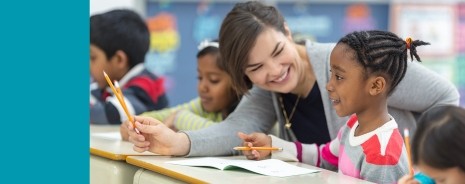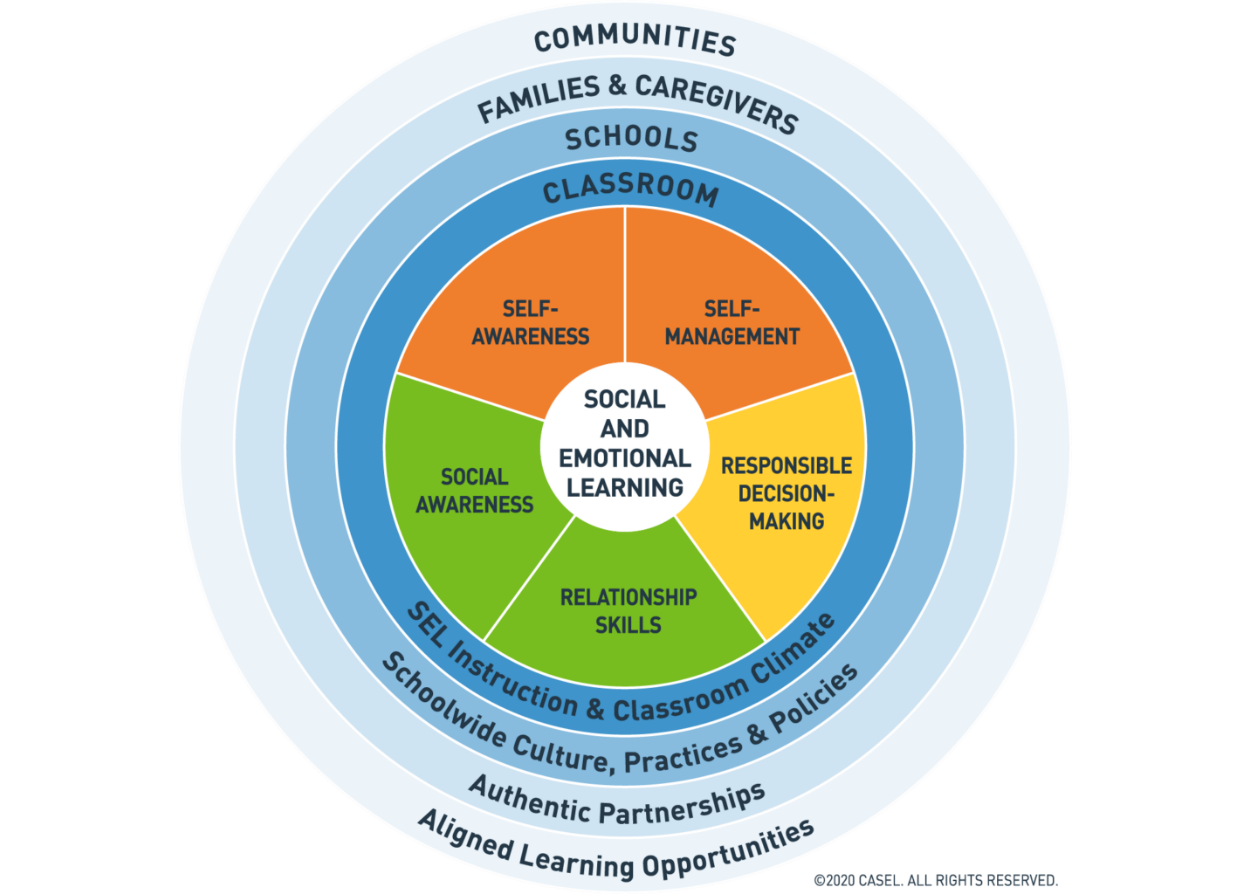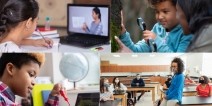
Social and Emotional Learning
Breadcrumb
Social and emotional learning (SEL) is the process through which all young people and adults acquire and apply their knowledge, skills, and attitudes to manage emotions, collaborate, achieve personal goals, feel and show empathy for others, establish and maintain supportive relationships, and make responsible and caring decisions. Well-implemented school programs designed to foster SEL are associated with many positive outcomes, ranging from better test scores and higher graduation rates to improved social behavior and mental wellness.
Further Reading
-
Foundational SEL Resources
-
Advancing the science and practice of social and emotional learning: Looking back and moving forward (
journal article, Review of Research in Education
) -
Fundamentals of SEL (
website, Collaborative for Academic, Social, and Emotional Learning
) -
The impact of enhancing students’ social and emotional learning: A meta-analysis of school-based universal interventions (
journal article, Child Development
) -
Development during adolescence: The impact of stage-environment fit on young adolescents’ experiences in schools and in families (
journal article, American Psychologist
) -
From a Nation at Risk to a Nation at Hope (
report, National Commission on Social, Emotional, and Academic Development
)
-
-
SEL and Positive School Climate
-
Teaching the Way Students Learn Best: Lessons from Bronxdale High School (
report and brief
) -
Social Justice Humanitas: A Community School Approach to Whole Child Education (
report and brief
)
-
Preparing Educators for Social and Emotional Learning
-
Preparing Teachers to Support Social and Emotional Learning: A Case Study of San Jose State University and Lakewood Elementary (
report and related materials
)
-
SEL in School Accountability and Improvement
-
Making ESSA's Equity Promise Real (
interactive map
)
-






